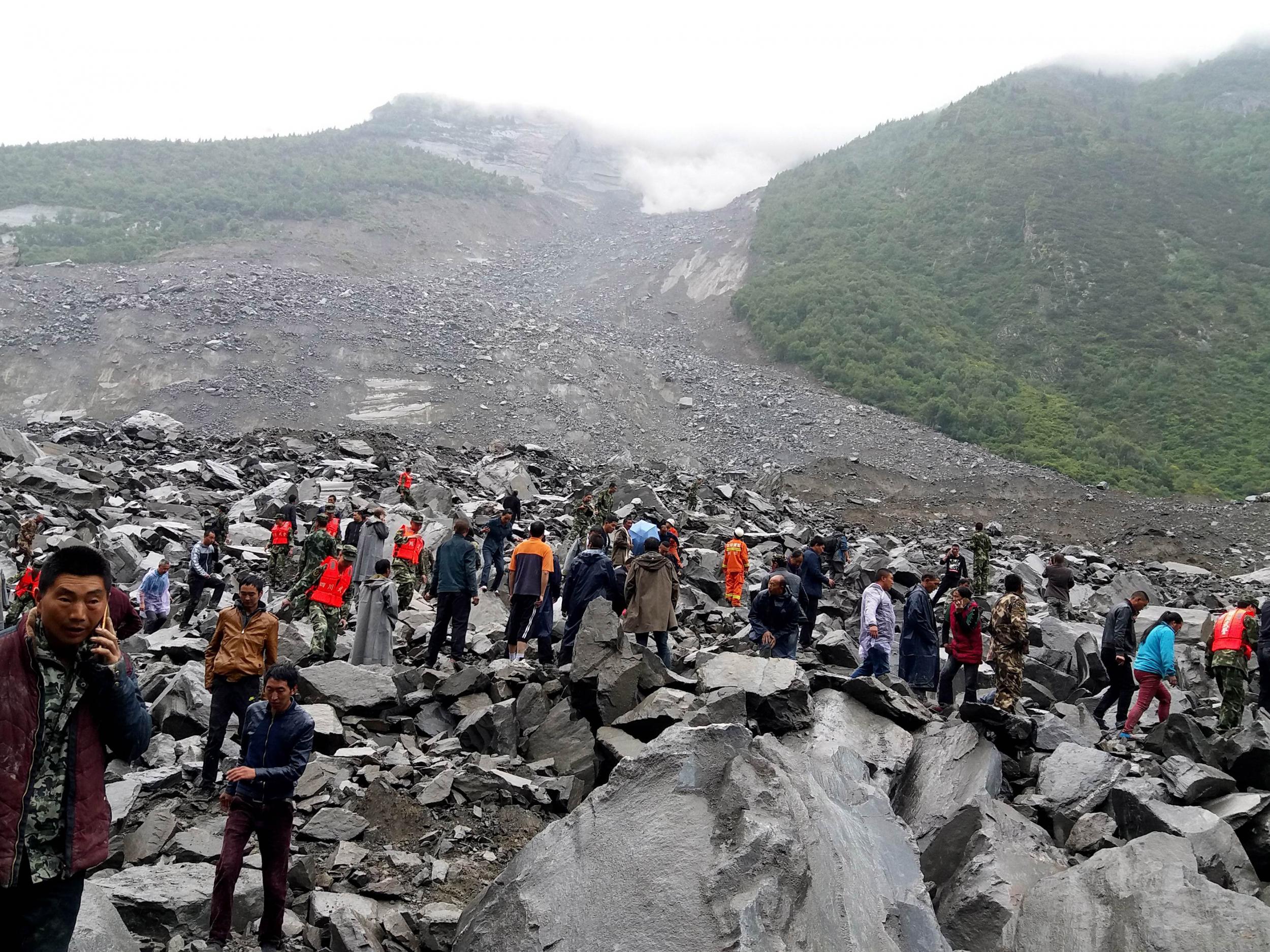Acid rain caused by air pollution in China ‘may be causing fatal landslides’, say scientists
New study suggests pollutants from burning coal could have a role in triggering natural disasters

Your support helps us to tell the story
From reproductive rights to climate change to Big Tech, The Independent is on the ground when the story is developing. Whether it's investigating the financials of Elon Musk's pro-Trump PAC or producing our latest documentary, 'The A Word', which shines a light on the American women fighting for reproductive rights, we know how important it is to parse out the facts from the messaging.
At such a critical moment in US history, we need reporters on the ground. Your donation allows us to keep sending journalists to speak to both sides of the story.
The Independent is trusted by Americans across the entire political spectrum. And unlike many other quality news outlets, we choose not to lock Americans out of our reporting and analysis with paywalls. We believe quality journalism should be available to everyone, paid for by those who can afford it.
Your support makes all the difference.Air pollution is such a serious problem in China that it may be triggering landslides, a study suggests.
Poor air quality is linked to around 4,000 deaths there every day but in a new study, geoscientists found there was a previously overlooked threat resulting from pollution.
“The pollutants may also be causing fatal landslides,” wrote Dr Ming Zhang and Dr Mauri McSaveney, the authors of a new study published in the journal Earth and Planetary Science Letters.
The scientists suggest acid rain resulting from air pollution could weaken layers of rock and trigger landslides.
Rain can become acidic when gases released by burning coal dissolve in it, forming sulphuric acid and nitric acid.
Due in part to its extensive mountains, China is a particularly landslide-prone country.
These natural disasters can sometimes occur when an earthquake destabilises layers of rock in mountainous regions, but there is still plenty of speculation about other mechanisms that trigger them.
The Jiweishan landslide in 2009 was particularly deadly, claiming the lives of 74 people, and for their study the researchers focused on the circumstances surrounding this event.
They concluded acid rain was able to reach layers of shale rock through cracks resulting from mining operations, and this weakened the mountain’s composition.
In laboratory experiments, Dr Zhang and Dr McSaveney found that placing shale from the Jiweishan landslide site in acid dissolved a mineral in the rock called calcite.
This left the rock spongy and weak, and with the calcite gone the primary remaining mineral was soft, slippery talc.
If this happened in a mountain, this process could have led to a large mass of rock sliding off a weakened, slippery layer.
Furthermore, the scientists suggested acid rain is capable of effectively “fertilising” the microbes living in the rock, allowing them to grow in number and break down the rock’s structure.
“It’s not outlandish, what they are proposing,” said Dr Andy Gibson, a researcher at the University of Portsmouth who focuses on landslides in China and was not involved in the study.
“We know that acid mine drainage has probably affected stability in some coal mines in the UK, historically,” he said.
However, Dr Gibson said while the acid rain could play a role in landslide initiation, this work does not provide causal evidence for it.
Dr Georgina Bennett, a researcher at the University of East Anglia who looks at how landslides respond to climate change, agreed the work presented an intriguing idea.
“Air pollution is not something that I had considered before, so it’s definitely interesting,” she said.
Dr Bennett said the idea sounds feasible, but even if acid rain was involved in the Jiweishan landslide it is likely to be one of many reasons.
Ascertaining the cause of landslides is difficult to do in a laboratory, said Dr Gibson, as scientists need data from actual disasters.
“The problem we have in applied earth sciences is that we can’t simulate this kind of failure in a laboratory, we need natural case studies in order to build up our understanding,” he said.
Join our commenting forum
Join thought-provoking conversations, follow other Independent readers and see their replies
Comments